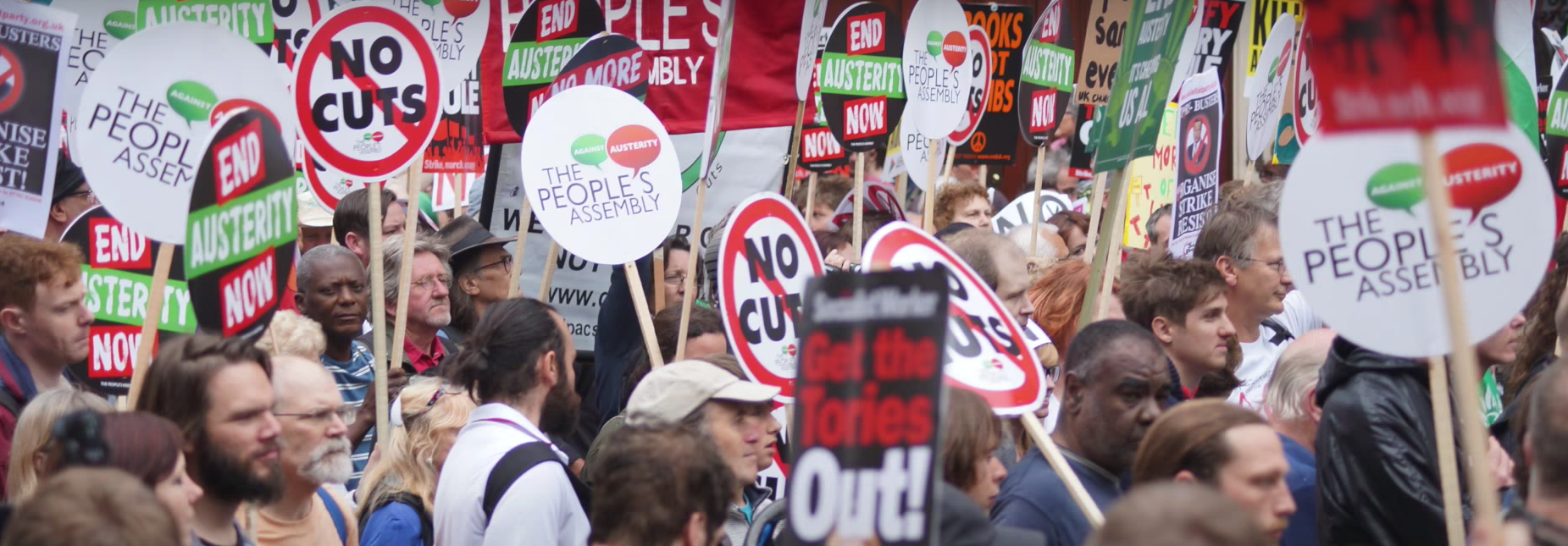On the same day, September 5, that the Tory party will announce its new leader and therefore the new Prime Minister, the TUC General Council has a meeting to discuss coordinating strikes currently taking place over living standards.
There is no doubt that the biggest threat to living standards for sixty years is a national emergency and one to which the trade union movement needs to respond decisively. Not only are we looking at an official rate of inflation already in double figures, but authoritative economic predictions are now suggesting that with other rises in the pipeline, notably energy in October, inflation may rise as high as 18% in 2023. Energy prices alone are set to rise by another 80% in October. This is not sustainable for most working families.
The only answer to the cost of living crisis from the favourite to be Tory leader, Liz Truss, is a threat to hamstring the trade union movement. She has promised that in her “first 30 days” as Premier, she would introduce new anti-union legislation, with a raft of measures, such as:
- A guaranteed minimum service levels in all public sector strikes.
- Raising the minimum threshold for workers backing a strike in a ballot for industrial action from 40 per cent of eligible voters to 50 per cent and extending the requirement to all sectors in an industry or service, organised in a union or not.
- Limiting the number of times workers can strike in the six months after a successful ballot.
- Increasing the minimum notice period for a strike from two to four weeks.
- Stopping members receiving tax-free strike pay from trade union funds for strike days.
- Ending all union facility time in the public sector.
- Tightening the numbers at picket lines, so that if members of the public (or MPs) show up to offer solidarity, it will jeopardise the ‘legality’ of a picket.
- Making it illegal to picket in the vicinity of key sites – which could include hospitals, schools, docks, etc.
Taking trade union rights back more than a century
If these measures don’t effectively outlaw the right to strike, it is also being proposed that an appropriate minister may use ‘emergency powers’ to declare any strike illegal if it is deemed to create a ‘national emergency’ in either the public or private sector. It is a catch-all that covers everything.
What is being proposed is no less than taking trade union law back over a century, to the days of the Taff Vale judgement. In 1901, the Taff Vale Railway Company was successful in suing the Amalgamated Society of Railway Servants, for costs incurred as a result of a strike. It was a decision then upheld by the House of Lords, and it effectively removed the right to strike as an effective weapon, because of the threat of any union being stripped of all its assets through punitive damages.

Trade union movement facing an historic turning point
At that time, workers increasingly turned towards getting some redress on the political plane. Affiliation of trade unions to the newly formed Labour Representation Committee, forerunner of the Labour Party, rose from 350,000 in 1901 to 450,000 in 1902 and 850,000 in 1903. Between 1900 and 1906 the number of Labour Members of Parliament rose from 2 to 29. It was their pressure that forced the Liberal government to eventually nullify the Taff Vale decision through the Trade Disputes Act of 1906.
Given the severity of the cost of living emergency and the draconian policies currently being advanced by Liz Truss, the trade union movement today is facing an equally historic turning point.
When the TUC general council meets on September 5, therefore, the minimum that it must do is to coordinate days of strikes among those unions that have already balloted for strike action and are pursuing wage claims at the moment. If the TUC set a day for a coordinated national 24-hour strike later in the month, it is possible that they could also include unions that are planning to ballot in September, like the two big education unions, NASUWT and the NEU.
Tory policy is a political attack on public sector workers
What the trade union movement is facing today is a coordinated political attack on living standards – the government holds the purse strings on public sector pay and are manoeuvring behind the scenes to press the rail operators not to settle with the rail unions. Put alongside the draconian anti-union legislation being proposed, it is a far bigger attack on the unions than in the days of Margaret Thatcher and it demands an equally powerful response.
Carried to their logical conclusion, the Truss proposals would reduce the unions to friendly societies, offering nothing more than advice and moral support to members, although even that is in jeopardy if shop stewards and reps get no facility time. The TUC must respond, by calling a coordinated strike across as many sectors and industries as possible. It would be a political message and the nearest thing to a general strike since the arrest and imprisonment of five dockers during the dock strike in 1972. But it would have the sanction of ‘legality’ because it would be based on the many trade union ballots that have taken place or are about to take place.
But the TUC should be prepared also to campaign around living standards. The problem call for a £15 and hour National Minimum Wage should be linked to coordinating national strikes. It should be linked to a series of demonstrations and mass rallies in every region, demanding a general election, to challenge the government’s claimed mandate to savage living standards and union rights.
Assault on living standards unprecedent in most peoples’ lifetimes
Despite all the adverse publicity in the mainstream media – which is no different to what we expect from a press overwhelmingly owned by tax-dodging billionaires – there is widespread public support for workers taking strike action. There is a generalised understanding that this assault on living standards is unprecedent in most peoples’ lifetimes and is unsustainable.
Predictions are that as many as two thirds of households may fall into fuel poverty this winter. The Labour leadership has all but abandoned its post, opposing strikes and opposing the £15/hour minimum. It is wrong for union leaders like Unite’s Sharon Graham – although one of the most militant in industrial struggles – to suggest “leaving politics to the politicians”.

The organisation of Labour-affiliated unions, TULO, which includes Unite, has the power to remove Starmer and David Evans if it so desired. It would be only by a change of leadership anyway, that Labour would campaign for trade union policies like renationalisation of Royal Mail, railways, energy, water and other utilities.
Trade unions may have no option but to break the law
Meanwhile, therefore, it must be the TUC that takes up the challenge to defend the interests of workers, youth, and pensioners. Most trade union leaders are at pains to avoid a clash with the Tories at the present time on the issue of the ‘legality’ of strike action. Given an opportunity, the Tories would use the judiciary at the drop of a hat to sequester the assets of any union deemed to be acting illegally.
But if it does come to a point where protest and strike actions are made legally impossible, then the trade unions will have no alternative but to break the law. In the final analysis, the organised workers’ movement is potentially far more powerful than any Tory law, but only if it is conscious of that power and properly led.
A legal system that is rigged in the bosses’ favour
Workers can see that the heads of big companies are never taken to court, much less imprisoned or have assets sequestered. Banks have been found guilty of laundering funds illegally, water companies have polluted beaches and rivers, the boss of P&O had admitted that he deliberately chose to break employment law – yet there is never a single prosecution of a CEO or company boss. In the final analysis, the trade unions cannot rely on a legal system that is rigged in the bosses’ favour.
This is no time to be meek, faced with a government that is hell-bent on pauperising the population and destroying trade unionism as it has functioned for a hundred years. It is all very well the TUC campaigning for £15 an hour – who in the labour movement would oppose that? – but it becomes little more than an empty gesture unless the TUC is prepared to coordinate and mobilise the powerful forces of organised workers to fight for it. Workers do not ask for the Moon – but the TUC should be prepared at the very least fight to defend the modest living standards and rights that we have now.



